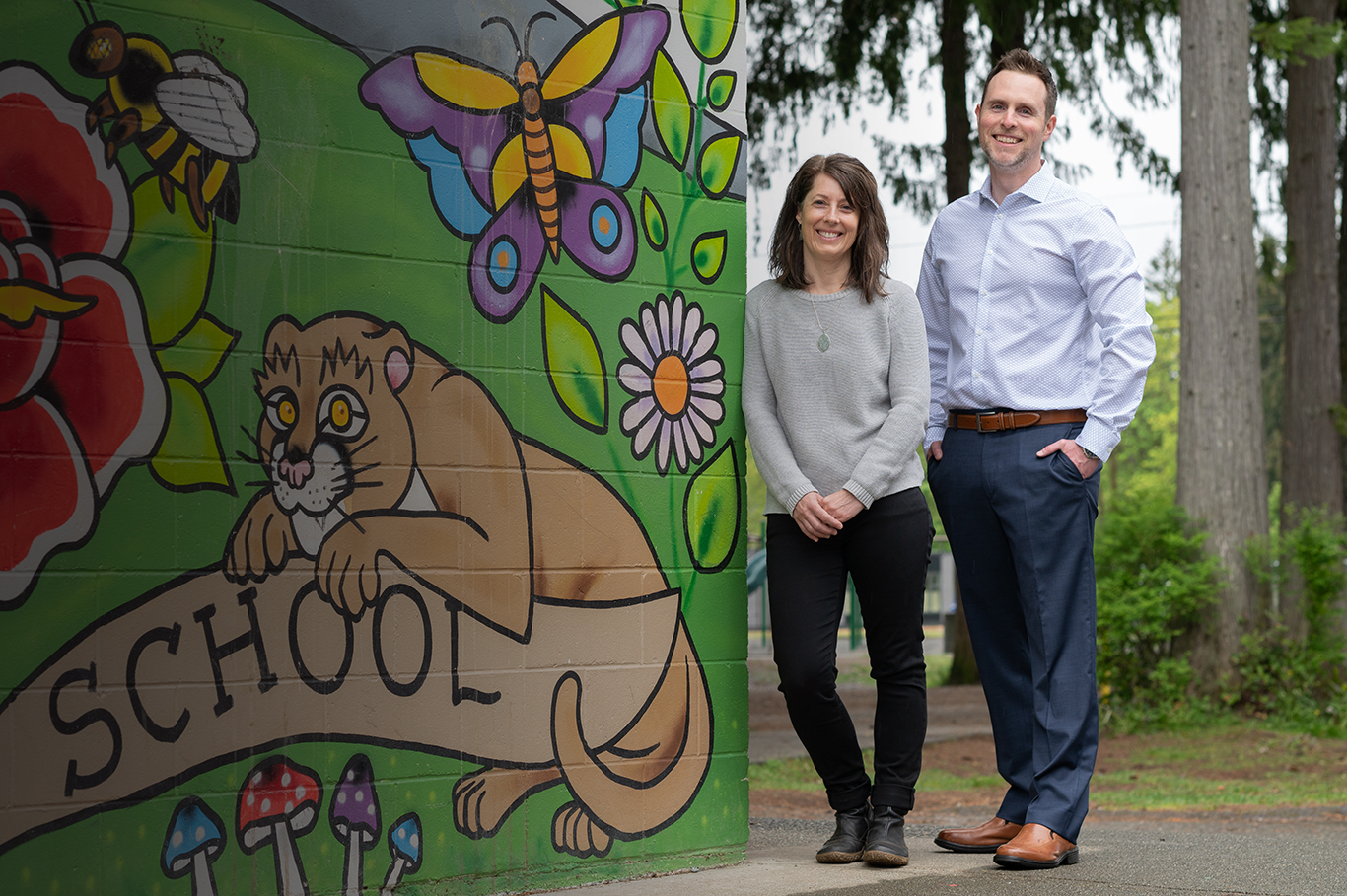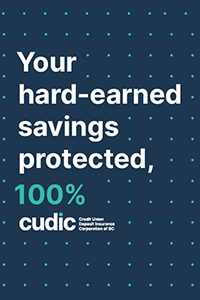
Posted: July 22, 2022 by First Credit Union - Social Impact
Access to healthy food is something that many people take for granted. When it is limited—or doesn’t exist—learning is harder, health outcomes are poorer, and life is tougher.
For the past 21 years, the Cumberland Community Schools Society (CCSS) has been helping to fill that gap with their Healthy Food Program.
“We offer breakfast, lunch and snacks to students at Cumberland Community School in grades K to 9,” explains Sue Loveless, Executive Director of CCSS. “There's a free breakfast every morning and we offer lunch five days a week to all staff and students at the school. The food is sourced locally, and the meals are affordable with subsidies available for low- and modest-income families.”
The way this program is delivered helps to break down barriers and the stigma that can be attached to food assistance programs. “One of the things that's really great about our lunch program is all of the students are getting the same meal so there's no stigma attached to being on subsidy.”
The program was created more than 20 years ago to address an identified need in the community.
“Currently we know from census data that 20 per cent of children and youth aged zero to 17 in Cumberland are living in low-income families,” Sue says. “And 21 years ago, that number was probably even higher. When students are well-nourished, they are able to learn better and they're able to focus, so this program helps with their academic performance. Teachers appreciate the program because if they notice a student is hungry, or someone hasn’t brought lunch that day, they can send them down to the kitchen for a snack.”
Through the Healthy Food Program CCSS serves 4,585 meals each month and 15% of these are provided free of charge to low- and modest-income families.
But the impact of the program reaches further into the culture of the school. “The program is about more than just good nutrition,” Sue says. “It also provides opportunities for leadership and learning life skills as some of the older youth help to prepare and serve the food. Many students like to stop by the kitchen and chat with the kitchen staff and have a cup of tea, so it offers a safe space and another connection to an adult in the community that they can talk to.”
Because of CCSS’s long history of helping to address food security in Cumberland, when the pandemic started in April 2020 and schools were closed, staff were concerned about how vulnerable families would access healthy food. That’s when they started working with community partners to develop a Food Share program.
“We had 55 students who lost access to subsidized breakfast and lunch. And we were also concerned about the broader community because we knew a lot of people were experiencing job loss and had a lot of other challenges related to the pandemic.”
The Food Share program sees healthy food hampers delivered directly to the doors of residents in Cumberland. The program started with 17 households and there are currently 60 households being served. “The demand for the program has tripled over the past three years, and it serves the entire community.”
Though the Food Share program started as an emergency stop gap, the past two years have indicated that there's a real need for an ongoing program, Sue says.
“Although Cumberland is part of the Comox Valley, we're a bit isolated. This means that many of our clients have difficulty accessing services in Courtenay because of disabilities or transportation challenges.” CCSS has received feedback via survey and directly from clients that there’s a need for access to healthy food closer to home. “We're working really hard to establish the Food Share as a long-term project here in Cumberland.”
While creating more need, the pandemic also made fundraising more challenging. CCSS has been supported by a number of local businesses and organizations over the years, and that diversity of support is invaluable, Sue says.
“Revenue from a variety of sources helps to strengthen our funding applications. If we can show we have support from our community, and that people trust us enough to contribute financially, it illustrates that our organization has the capacity to make a significant impact. Tackling big issues like food security requires a broad community effort.”
CCSS is working hard to develop more sustainable funding models for these programs, which fall under the umbrella of their Food Security Campaign. First Credit Union (FCU) has committed three years of ongoing funding, which is helpful, Sue says, because that multi-year funding helps them plan ahead. FCU provided a $10,000 donation this year, which “is going to help us in the year where we're struggling to secure enough funding to keep our food programs operating.” Anyone wanting to know how they can help should visit cumberlandcommunityschools.com.
Like the Healthy Food Program, the impacts of the Food Share program are not limited to the provision of healthy food.
“Speaking to clients, it's very clear how much they appreciate the service and how for some, it's really changed their lives,” Sue says. “Even if people are only registered in the program for six months, it helps them through a difficult time in their lives until they're able to get back on their feet.
“Also, we've had over 75 different volunteers over the past two years. They help sort, pack, and deliver the food boxes every week, and they appreciate the opportunity to give back to their community. So, there’s a lot of community impact for our clients, for our volunteers, and for our donors and funders and the businesses who contribute who also feel good about being part of a community project like this.”

